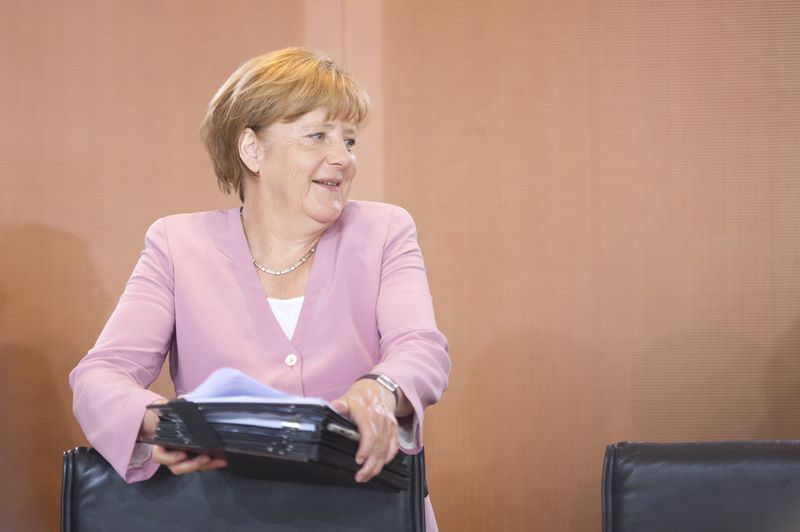By Noah Barkin
BERLIN (Reuters) - German Chancellor Angela Merkel tried to reassure sceptical lawmakers on Sunday that the International Monetary Fund would take part in a new bailout for Greece, before a parliamentary vote in which many of her conservatives may break ranks and reject the rescue.
In her first public comments since her summer break, Merkel told broadcaster ZDF that she was sure Christine Lagarde, head of the IMF, would ensure the participation of the fund if conditions on Greek pension reform and debt relief were met.
"Mrs. Lagarde, the chief of the IMF, made very clear that if these conditions are met, then she will recommend to the IMF board that the IMF takes part in the programme from October," Merkel said. "I have no doubts that what Mrs. Lagarde said will become reality."
Uncertainty over the IMF role in the 86 billion-euro bailout has become a headache for Merkel before Wednesday's vote in the Bundestag. Lawmakers from her Christian Democratic Union (CDU) and its Bavarian sister party, the Christian Social Union (CSU), want the IMF involved because of its reputation for rigour.
Volker Kauder, a close Merkel ally and the leader of her conservatives in parliament, has even described IMF involvement as a "condition" for supporting a new bailout.
But Lagarde, who has been pressing euro zone countries to provide Athens with "significant" debt relief, has said the IMF will wait until October to decide whether to participate. That would force lawmakers to vote without any guarantees that the Washington-based institution will have a role.
In a nod to its calls for debt relief, Merkel said there was room to ease the burden on Greece by extending the maturities on its debt and reducing interest rates.
German approval of the bailout is not in doubt because of the support of parties like the Social Democrats and Greens. But a rebellion by a large number of her allies would be a blow for Merkel, who remains highly popular after 10 years in office.
Last month, a record 65 lawmakers from Merkel's conservative camp broke ranks and refused to back negotiations on the bailout. German newspaper Bild estimated at the weekend that up to 120 CDU and CSU members may refuse to back the government in the vote on Wednesday.
In the interview, Merkel rejected the notion that Germany had driven too hard a bargain with Greece or that Berlin had been isolated in the talks on a third bailout.
"It doesn't help if we are all nice with each other now, only to have a situation in two to three years where we are worse off than today. The euro crisis has already lasted too long," she said.

Asked whether Berlin was striving for a "German Europe", Merkel said: "We don't want this".